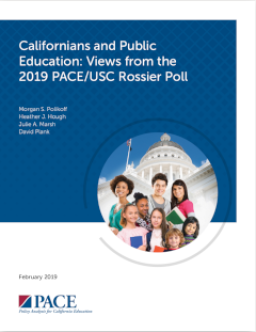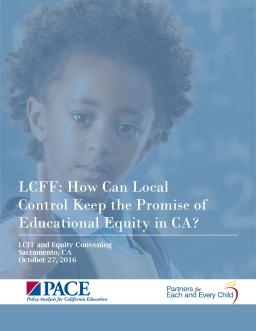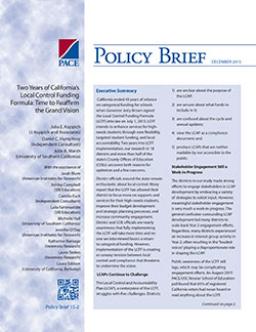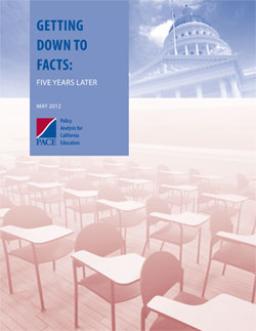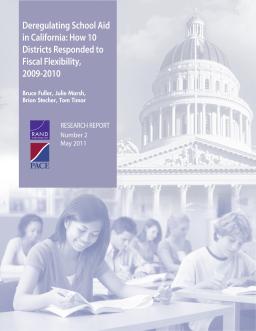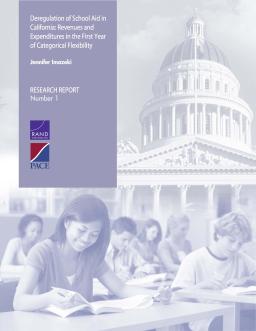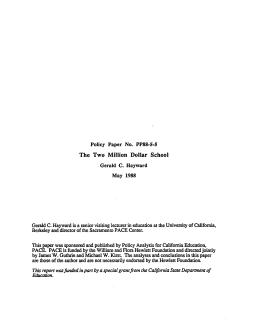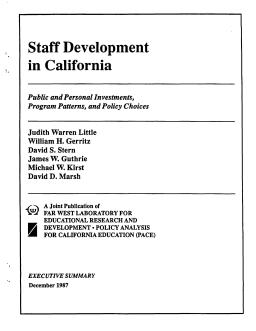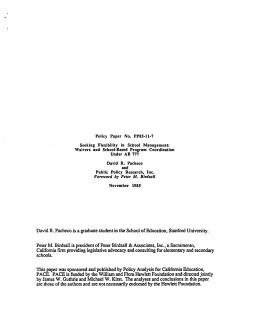Summary
Summary
American schools have long suffered from inequitable distribution of funding, resources, and effective teachers. The LCFF reform in California is a promising solution to address achievement gaps for high-need students, but successful implementation is critical. Research has found that stakeholder engagement, explicit equity frameworks, and evidence-based programs are crucial to ensure positive impact. Studies have also revealed challenges such as underspending funds and insufficient stakeholder engagement, highlighting the need for continuous improvement.
Summary
The Local Control Funding Formula (LCFF) replaced categorical funding for schools in California in 2013, providing flexibility, targeted student funding, and local accountability. Two years in, research shows optimism and concern. The Local Control and Accountability Plan (LCAP) faces challenges, stakeholders need more engagement, and implementation requires capacity and overcoming the emerging teacher shortage. Public awareness of LCFF lags at 65%.
Summary
This report commemorates the fifth anniversary of the Getting Down to Facts project, which sought to provide a thorough and reliable analysis of the critical challenges facing California’s education system as the necessary basis for an informed discussion of policy changes aimed at improving the performance of California schools and students. The report focuses on the four key issues that received emphasis in the Getting Down to Facts studies: governance, finance, personnel, and data systems.
